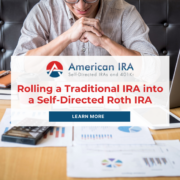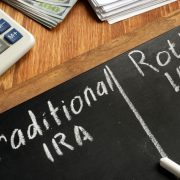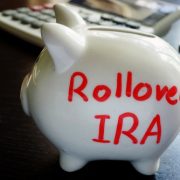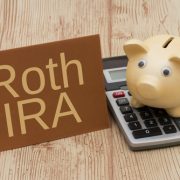What is a Conversion for a Self-Directed Roth IRA?
When it comes to funding a Self-Directed Roth IRA, you may have heard of several different options. One of those options is known as a conversion, and it can be a bit confusing for people who are only familiar with making contributions to a Roth IRA. But what is conversion, and how does it work? Let us explore this topic in greater depth.
Defining the Roth IRA Conversion
According to Investopedia, “A Roth IRA conversion is a transfer of retirement assets from a Traditional, SEP, or SIMPLE IRA into a Roth IRA, which creates a taxable event.” The article at Investopedia notes that this can be advantageous for people with large amounts of money within a Traditional IRA account, for example, who expect that their future tax liabilities will either stay at current levels or grow by the time they retire. Because the Roth IRA is an after-tax account, it means that the money you hold within a Roth IRA has already had the taxes paid on it. For this reason, qualified distributions you take from the account upon hitting the appropriate age can be taken tax-free. Think of it as money you already have.
That is one reason a conversion to a Roth IRA can create a taxable event: you would need to pay taxes on the Roth IRA upfront. Because converting funds in a Traditional IRA (before-tax funds) to a Roth IRA means moving from before-tax money to after-tax money, the taxes would have to be paid on that money at some point. And since that will not happen when you take qualified distributions from the Roth IRA later in life, it has to create a taxable event at the point of conversion.
Is a Roth IRA Conversion Expensive?
This is really a question for a tax professional, because everyone’s individual situation is different, and we can’t offer specific financial advice. However, we can talk about how a Roth IRA conversion works. This is a rollover of the assets within an account. However, because of the already-mentioned fact that moving untaxed money into an after-tax account can create a taxable event, you will want to be clear about the implications of doing so. That means consulting with a financial planner / tax professional before you get started with the process.
If this creates a taxable event, some wonder, then why do some investors want to convert a Traditional IRA into a Roth IRA? One of the reasons to do so is to utilize the tax benefits of having a taxable event occur now rather than in the future. For example, if an investor has enough money in retirement assets that their tax bracket will be much higher upon retirement, that can sometimes be an incentive to front-load the taxes. It may not seem to make sense from an outsider’s perspective, but from a tax planning perspective, it can sometimes save an investor money in the long run. That is not to say that this is a rule of thumb for all investors, and certainly is not a recommendation. However, it is why some people do utilize a Roth IRA conversion.
What Does a Self-Directed Roth IRA Mean?
A Self-Directed Roth IRA is simply a Roth IRA that investors can control themselves. In this case, that means they can work their own investments at their choosing, which can include a wide variety of retirement assets such as real estate, precious metals, and private companies and LLCs.
Interested in learning more about Self-Directed IRAs? Contact American IRA, LLC at 866-7500-IRA (472) for a free consultation. Download our free guides or visit us online at www.AmericanIRA.com.









